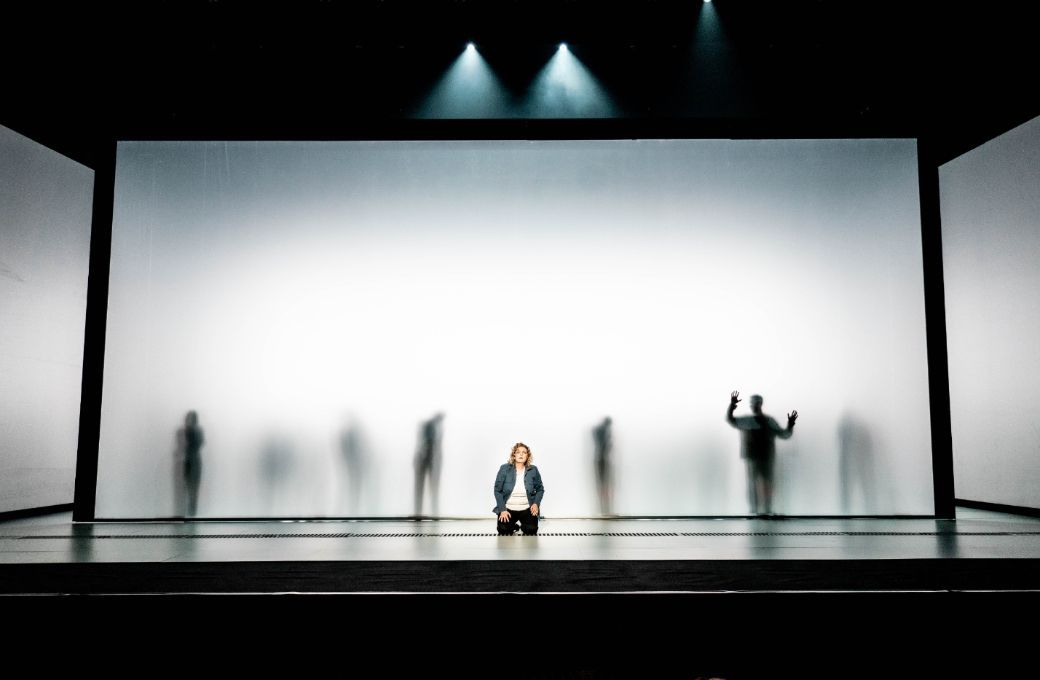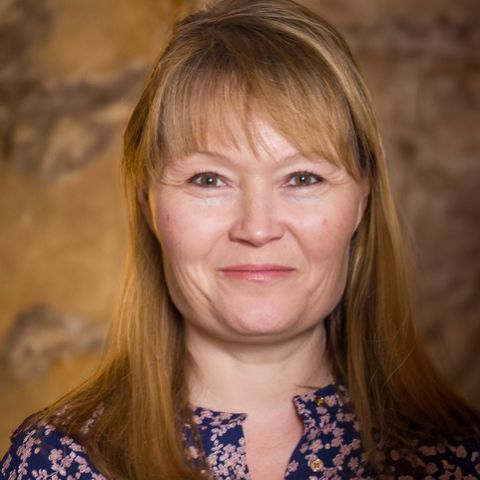Fidelio, the latest production from Nederlandse Reisopera, was a measured and thoughtful exploration of themes such as the identity, freedom, love, sacrifice, courage and loyalty, all of which are as relevant today as they were to the ancién régime time of Beethoven in the wake of the French Revolution. “There is always hope,” words from the British director John Fulljames, echoed through every aspect of this polished performance, a joint production with Den Kongelige Opera, Copenhagen (2020) and Teatr Wielki, Warsaw (2021).

The dramatic opening, using the Leonore Overture no. 2, Op.72a from the original 1805 score, contrasted wonderfully with the opaque quality of the horns and matched the stark whiteness of the stage, lit with just the word Leonore. Constantly changing lighting effects, akin to a cliff-hanger in a gripping novel, left us wanting more. Whilst some may have been nervous about attending a performance minus the dialogue, clever use of onstage visuals more than compensated; if anything they enhanced the experience. We watched the transformation of Leonore into Fidelio unfold before our very eyes in her bid to save her imprisoned husband Florestan from his dungeon prison cell.
Written the year after Beethoven’s Third Symphony, Fidelio is full of orchestral colour, from lyrical cellos to off-stage trumpets, and Otto Tausk’s masterful and meticulous command of this incredible score, creating suspense at every corner, was mesmerising. Phion Orkest was on fire! The French horns were the undoubted stars of the show with their hugely intricate and impressive hunting calls.
Equally impressive were the soloists. I initially wanted more from Yorck Felix Speer’s Rocco in the opening numbers, especially in the lower range of his voice. But once he was threatened by the evil Pizarro, Speer soon found his true self. Julietta Aleksanyan was utterly convincing as Marzelline and even brought a lovely comic element to the proceeding in her exchanges with her suitor, Jaquino. The arrival on stage of Kelly God as Leonore with her rich dramatic voice really set the tone. Her words at times surged through the Wilminktheater like the wind: turbulent and unpredictable, yet contrasted by moments of intense calm and tender affection.
Bastiaan Everink’s Pizarro, emerging from the shadows in his glistening silver suit, was the true embodiment of evil. He gave us possibly the most dramatic moment of the night, standing amidst the menacing, balaclava-clad prison guards and looking every bit the Bond villain. His commanding vocals brought echoes of Mozart’s Don Giovanni to mind as we all cowered in fear.
The huge cast, provided by the formidable Consensus Vocalis, were utterly convincing. “O welche Lust”, the Prisoners’ Chorus, was a moment of great poignancy. Would good overcome evil? Would Florestan find freedom, and at what cost? Fulljames’ belief in opera as a political statement was undeniable here as we were confronted with images of suffering. Prisoners’ arms stretched ever upwards toward heaven, hinting at a society with religion at its heart in contrast to today’s increasingly secular world. Aided by assistant director Aylin Bozok, this production articulated the question so masterfully crafted by Beethoven: what is true freedom?
Bryan Register’s portrayal of Florestan was equally engaging as a man reduced to crawling around his prison cell on hands and knees, cowering in front of his disguised wife. So reduced was his self-esteem that he could not recognise the kindness and friendship on offer from his wife disguised as Fidelio.
Congratulations must go to Steffan Aafing and Lee Curran for the clever lighting and set design which reflected every nuance of the music, employing subtle shades and varied hues; never more so than in the reunion of Florestan and Leonore. The intensely bright light as they embraced, depicting their love, was enhanced by the orchestral addition of the third movement from Beethoven’s String Quartet no. 15 in A minor – for me the highlight of the evening. Resonating double basses added sincerity to the reunion as images on screen alluded to the fragility and simplicity of their love. This was Beethoven at his best, hugely emotional and sounding remarkably contemporary.
The jubilant chorus as prisoners’ chains were flung in the air gave a joyous finale as God’s immense voice soared over the entire chorus and orchestra with the greatest of ease. This was opera made accessible for all, from the 100-year-old lady who was serenaded by the cast and audience in the foyer as we waited for our coats, to the teenager attending opera for the first time. This was opera which found expression using modern technology in a way that did not offend, intimidate or distract the audience, but rather enhanced the experience. Nederlandse Reisopera made this 220-year-old German text and the musical language of Beethoven seem contemporary and relevant, even challenging.


